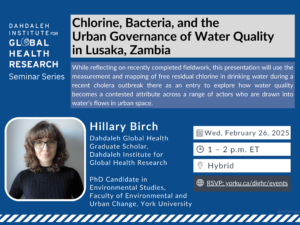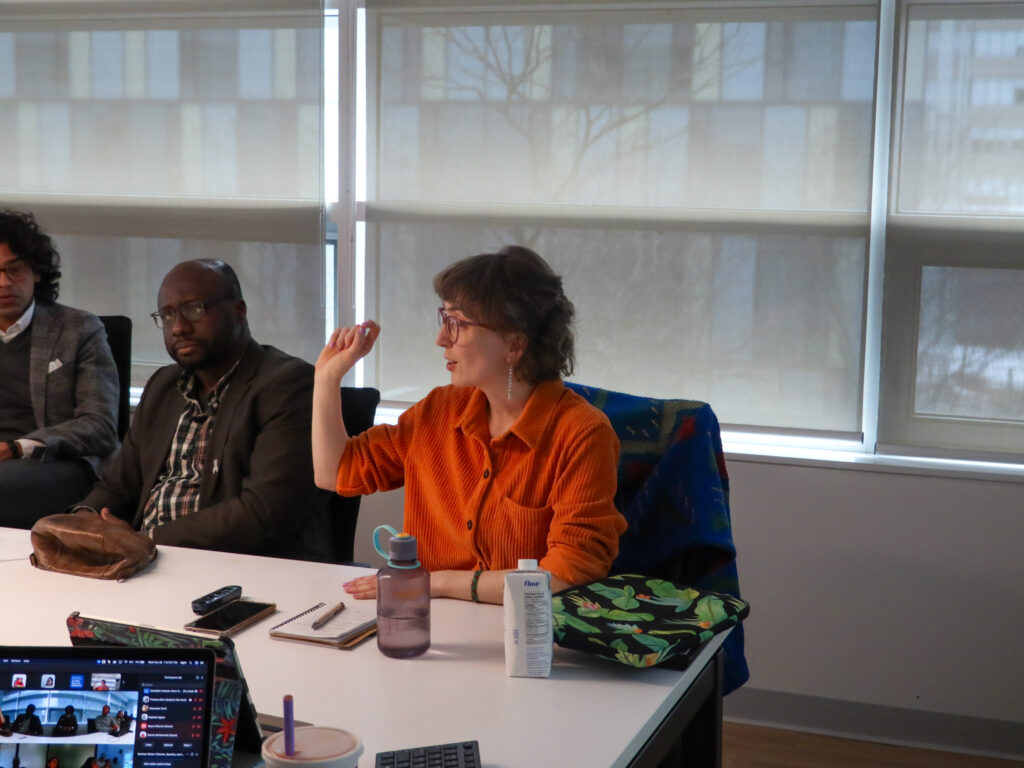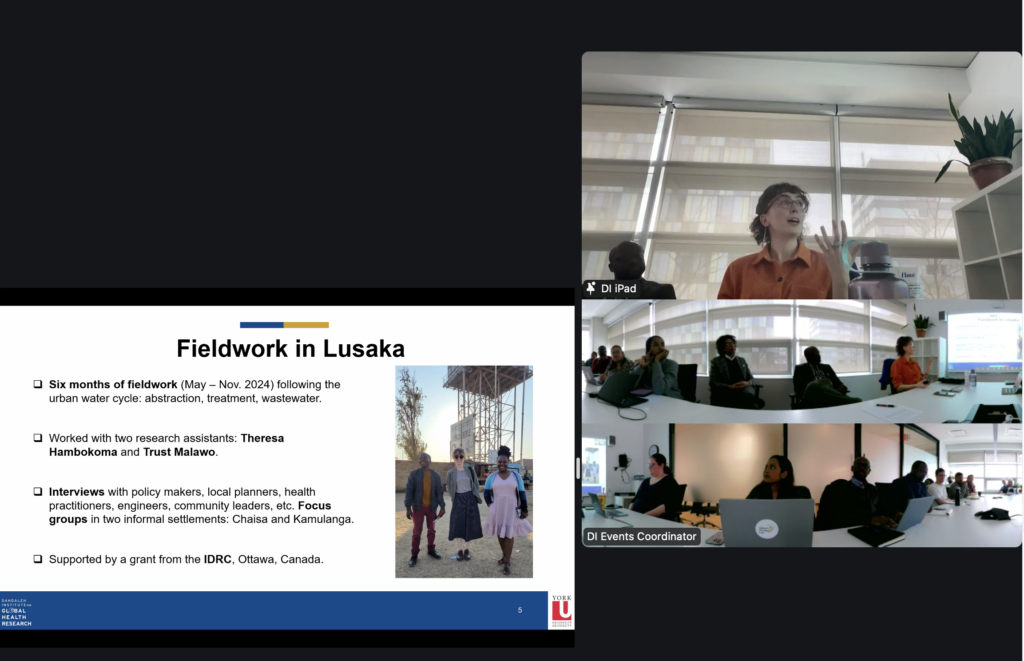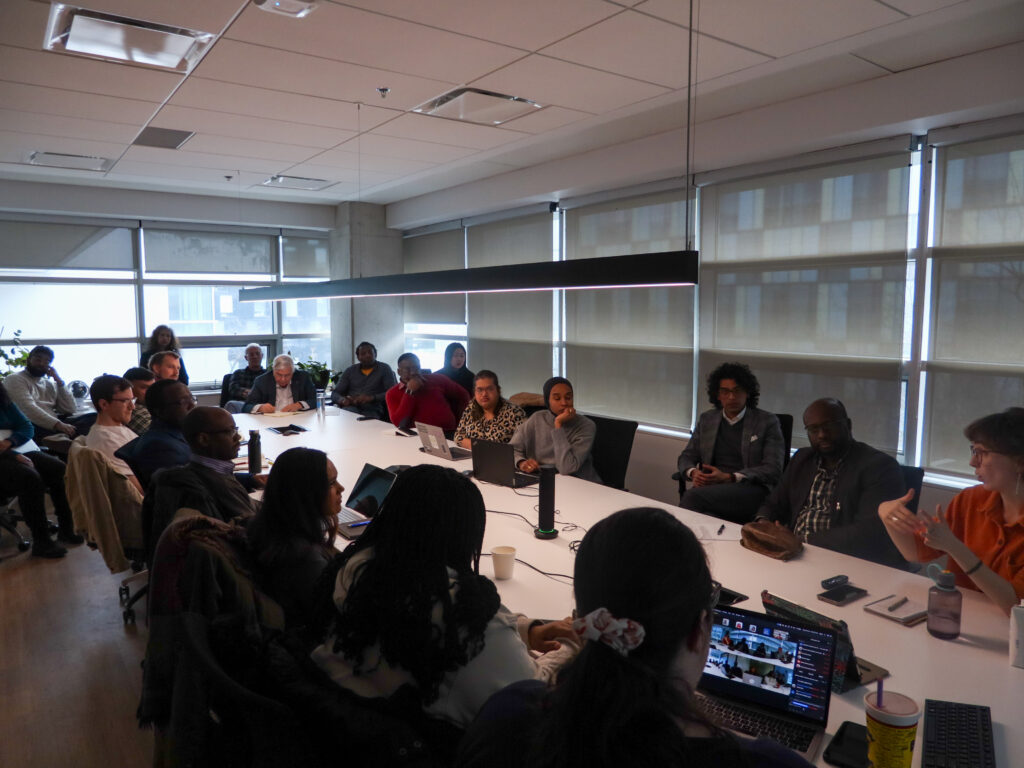Post
Published on March 27, 2025

On February 26, 2025, Dahdaleh Graduate Student Scholar, Hillary Birch, explored the urban governance of water quality in Lusaka, Zambia. A PhD candidate in Environmental Studies at York University, Birch presented findings from her six-month fieldwork, examining how water quality is contested, measured and shaped by governance structures, particularly in response to recurrent cholera outbreaks.
Lusaka’s water infrastructure is highly fragmented. While 85% of the population has access to piped water, this often comes through communal kiosks with intermittent supply and only a small portion of the city is connected to a sewer system. The city’s reliance on groundwater, combined with seasonal flooding and inadequate sanitation, contributes to waterborne disease outbreaks such as the severe cholera outbreak from 2023 to 2024 which resulted in over 23,000 cases and hundreds of deaths.



A major focus of Birch’s research was the role of free chlorine residual (FCR) testing in determining water safety. The Ministry of Health and UNICEF conducted extensive testing during the cholera outbreak, mapping water points across the city to assess whether chlorine levels met internationally recommended standards. The results highlighted widespread inconsistencies in water quality, revealing systemic governance gaps and tensions between public health agencies and commercial water providers over accountability and responsibility for water in the city.
Community members expressed deep distrust of their water sources, citing unpredictable changes in quality throughout the day and across locations. Many observed that leaks in pipes allowed contamination to occur, while others noted that official testing confirmed bacterial presence in water which they had previously trusted. Although chlorination is promoted as a key treatment method, affordability remains a challenge, leaving many residents unable to maintain safe water access as they are made responsible for water treatment at the household level. Birch concluded that chlorine, while a crucial public health tool, also exposes deeper structural issues in water governance and global health practice. She emphasized the need for systemic solutions that go beyond household interventions and instead advocate for sustainable policies to ensure equitable access to safe drinking water.
Connect with Hillary Birch.
Watch the seminar here: https://youtu.be/-hvQcTcGXoA
Themes | Global Health & Humanitarianism |
Status | Active |
Related Work |
N/A
|
Updates |
N/A
|
People |
Hillary Birch, Dahdaleh Global Health Graduate Scholar, Faculty of Environmental and Urban Change - Active
|
You may also be interested in...
Recap — Systems Approach to Address Resource Insecurity and Health Inequities, with Godfred Boateng
On October 23, Dahdaleh faculty fellow Professor Godfred Boateng examined how interconnected systems such as food, water, energy, and housing insecurity impact public health, particularly within vulnerable communities. Professor Boateng used the analogy of blind ...Read more about this Post
Highlighting the SWOT’s Risk-Based Approach at the 2022 Emergency Environmental Health Forum
Dahdaleh Institute member Michael DeSanti is presenting on the innovative Safe Water Optimization Tool (SWOT) at the 2022 Emergency Environmental Health Forum. He will discuss SWOT’s risk-based approach to generating chlorination guidance to ensure safe ...Read more about this Post
SeeChange
Communities are the future of Humanitarian Action SeeChange is a social purpose organization that firmly believes that communities can lead the responses tohealth crises that affect them. We seek to create meaningful and lasting change, ...Read more about this Project
